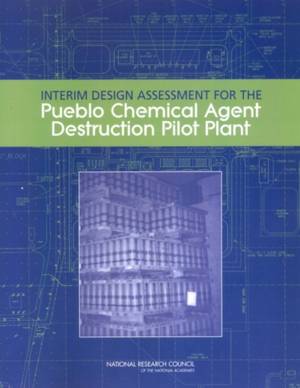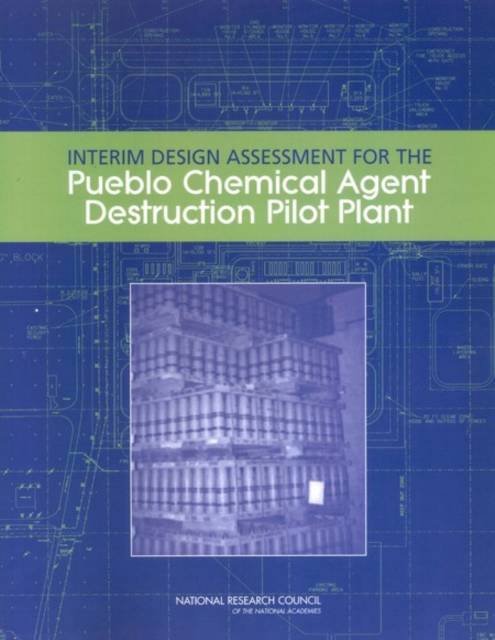
- Afhalen na 1 uur in een winkel met voorraad
- Gratis thuislevering in België vanaf € 30
- Ruim aanbod met 7 miljoen producten
- Afhalen na 1 uur in een winkel met voorraad
- Gratis thuislevering in België vanaf € 30
- Ruim aanbod met 7 miljoen producten
Zoeken
Interim Design Assessment for the Pueblo Chemical Agent Destruction Pilot Plant
National Research Council, Division on Engineering and Physical Sciences, Board on Army Science and Technology, Committee to Assess Designs for Pueblo and Blue Grass Chemical A
Paperback | Engels
€ 42,95
+ 85 punten
Omschrijving
In 1996, Congress enacted directing the Department of Defense to assess and demonstrate technology alternatives to incineration for destruction of the chemical weapons stored at Pueblo Chemical and Blue Grass Army Depots. Since then, the National Research Council (NRC) has been carrying out evaluations of candidate technologies including reviews of engineering design studies and demonstration testing. Most recently, the NRC was asked by the Army to evaluate designs for pilot plants at Pueblo and Blue Grass. These pilot plants would use chemical neutralization for destroying the chemical agent and the energetics in the munitions stockpiles of these two depots. This report provides the interim assessment of the Pueblo Chemical Agent Destruction Pilot Plant (PCAPP) to permit adjustment of any significant problems as soon as possible. The report presents an analysis of the issues about the current PCAPP design and a series of findings and recommendations about ways to reduce concerns with involve the public more heavily in the process.
Specificaties
Betrokkenen
- Auteur(s):
- Uitgeverij:
Inhoud
- Aantal bladzijden:
- 92
- Taal:
- Engels
Eigenschappen
- Productcode (EAN):
- 9780309094450
- Verschijningsdatum:
- 18/02/2005
- Uitvoering:
- Paperback
- Formaat:
- Trade paperback (VS)
- Afmetingen:
- 216 mm x 279 mm
- Gewicht:
- 301 g

Alleen bij Standaard Boekhandel
+ 85 punten op je klantenkaart van Standaard Boekhandel
Beoordelingen
We publiceren alleen reviews die voldoen aan de voorwaarden voor reviews. Bekijk onze voorwaarden voor reviews.








